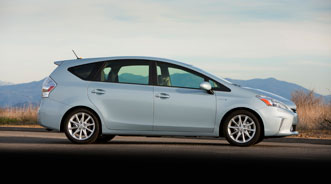Kbb.com: Consumers Expect Gas Prices to Rise More but Remain Cautious About Alternative-Fuel Vehicles

By subscribing, you agree to receive communications from Auto Remarketing and our partners in accordance with our Privacy Policy. We may share your information with select partners and sponsors who may contact you about their products and services. You may unsubscribe at any time.
IRVINE, Calif. –
Gas prices are nearing $4, but shoppers still remain cautious when it comes to alternative-fuel vehicles. And according to Kbb.com, consumers don’t think the fuel rate spike is over — a worry that is still not causing them to consider alternative-fuel vehicles, site officials explained.
Kbb.com’s new M.I. Quick stats for September, which provide a snapshot of new- and used-car shopper perceptions and behaviors on the site, explained that Kbb.com shoppers were asked during Q3 what direction they thought gas prices would go in the next 30 days, and more than 50 percent of survey respondents stated that “they expect gas prices to increase somewhat or much higher, while nearly another third of the respondents stated that they expect gas prices to stay the same.”
But even though half of the survey respondents expect gas prices to climb even higher, shoppers proved Kelley Blue Book Market Intelligence’s forecasted uptick in stated consideration for alternative-fuel vehicles wrong.
In fact, the percentage of new-car shoppers considering an alternative-fuel vehicle has remained relatively the same since Q1, Kbb.com officials shared.
Kbb.com also decided to ask consumers “why” they weren’t considering purchasing an alternative-fuel vehicle.
“More than 50 percent of respondents said the fuel savings is not worth the extra cost of the vehicle,” officials shared.
Subscribe to Auto Remarketing to stay informed and stay ahead.
By subscribing, you agree to receive communications from Auto Remarketing and our partners in accordance with our Privacy Policy. We may share your information with select partners and sponsors who may contact you about their products and services. You may unsubscribe at any time.
“Despite the increase in gas prices and negative consumer outlook on where they are headed, it is evident that price-conscious shoppers are doing the math and determining there is no financial benefit to purchasing an alternative-fuel vehicle at this time,” they continued.
The site also explained that shoppers are also concerned with the cost of ownership for alternative-fuel rides.
“It is clear that new-car shoppers are doing the research on long-term costs or at least running the quick math on fuel savings. Combine this with having other perceived worries, such as poor dependability, higher maintenance costs and subpar performance, alternative-fuel vehicle consideration could remain flat,” the site shared.
“Automaker and dealer messaging should focus on combating these concerns and addressing the additional benefits of alternative-fuel vehicles on top of fuel efficiency,” officials concluded.


